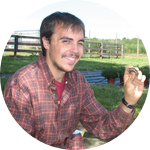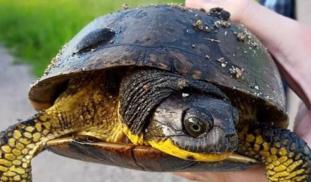Please wait...
About This Project
Climate change is expected to have impacts on biodiversity worldwide. Many species will be faced with a choice: move to track shifting climate conditions, or try to adapt to shifting conditions. But what about animals that are poor dispersers, such as turtles? Our aim is to investigate this question using two turtle species in Wisconsin. By using genomic methods and existing genetic data, we hope to determine if turtles have enough variation in adaptive genes to respond to climate change.
More Lab Notes From This Project

Browse Other Projects on Experiment
Related Projects
Out for blood: Hemoparasites in white-tailed deer from the Shenandoah Valley in Northern Virginia
Our research question centers about the prevalence and diversity of hemoparasites that infect ungulate poplulations...
Using eDNA to examine protected California species in streams at Hastings Reserve
Hastings Reserve is home to three streams that provide critical habitat for sensitive native species. Through...
How do polar bears stay healthy on the world's worst diet?
Polar bears survive almost entirely on seal fat. Yet unlike humans who eat high-fat diets, polar bears never...





